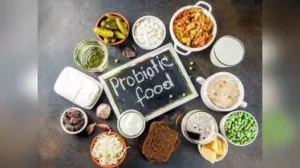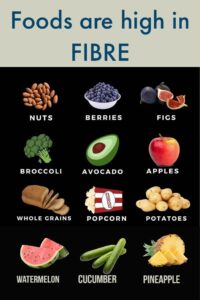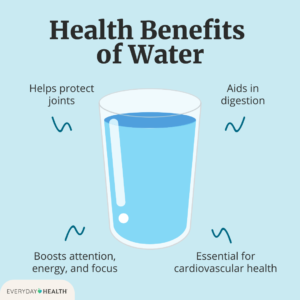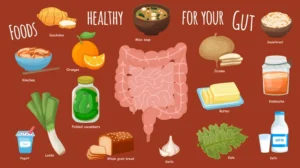Improving gut health through food is essential for overall well-being, influencing digestion, immunity, mental health, and even skin condition. By making small dietary changes, you can significantly enhance your gut health. Here’s how focusing on specific foods and habits can help you achieve a healthier gut.
1. Why Gut Health Matters
Gut health matters because your microbiome, made up of trillions of bacteria, plays a critical role in digestion, immune function, and mood regulation. Poor gut health can lead to digestive discomfort, bloating, constipation, and even mental health issues like anxiety and depression. Therefore, understanding how to improve gut health with food is vital for maintaining a balanced and healthy body.
2. Probiotics and Prebiotics: The Gut’s Best Friends
When trying to improve gut health with food, two important terms come up: probiotics and prebiotics. Probiotics are live beneficial bacteria that help balance the gut microbiome, while prebiotics are fibers that feed those beneficial bacteria. Foods like yogurt, kefir, and kimchi are rich in probiotics, which enhance digestion and strengthen immunity. On the other hand, foods such as garlic, onions, and bananas provide prebiotics, ensuring the growth of good bacteria.
Incorporating both probiotic and prebiotic-rich foods into your diet is key to improving gut health with food. These foods promote a balanced microbiome, improving digestion and overall wellness.
3. High-Fiber Foods for Healthy Digestion
Fiber is essential for gut health because it helps food pass smoothly through the intestines, preventing constipation and promoting good digestion. Fiber-rich foods such as whole grains, fruits, vegetables, and legumes provide both soluble and insoluble fiber, which support gut bacteria and improve digestion.
Regularly including high-fiber foods in your diet can significantly contribute to improving gut health with food by ensuring that your digestive system remains in optimal condition.
4. Anti-Inflammatory Foods for Gut Health
Chronic inflammation can damage the gut and disturb the microbiome, which is why including anti-inflammatory foods is vital. Foods rich in omega-3 fatty acids, antioxidants, and polyphenols—like fatty fish, olive oil, turmeric, and ginger—help reduce inflammation and support a healthy gut.
By adding these anti-inflammatory foods, you’ll be improving gut health with food, reducing inflammation, and enhancing your digestive function.
5. Limit Sugar and Processed Foods

Excess sugar and processed foods can disrupt the balance of gut bacteria, contributing to inflammation and digestive issues. High sugar intake has been linked to conditions like bloating, gas, and irregular bowel movements. Therefore, focusing on whole, unprocessed foods is crucial for improving gut health with food.
By avoiding excessive consumption of processed foods and added sugars, you help restore the balance of bacteria in your gut, which is essential for good digestive health.
6. Hydration: A Key Player in Gut Health
Staying hydrated is often overlooked but is essential for healthy digestion. Drinking enough water helps prevent constipation, aids digestion, and supports the balance of gut bacteria. Therefore, adequate hydration is another important step in improving gut health with food.
It’s crucial to drink plenty of water throughout the day and limit sugary drinks that can negatively affect the gut microbiome.
7. Polyphenols for Gut Health
Polyphenols, found in foods like berries, apples, and green tea, are powerful antioxidants that support the growth of beneficial bacteria. These plant compounds not only promote digestion but also reduce gut inflammation. Including polyphenol-rich foods in your diet is another way of improving gut health with food.
Conclusion
Improve gut health with food is an easy and effective way to support overall health. By incorporating probiotics, prebiotics, fiber, and anti-inflammatory foods into your daily routine, and staying hydrated, you nurture your gut microbiome, enhance digestion, and improve immunity. Avoiding processed foods and reducing sugar intake is also vital for maintaining a healthy gut.
Small changes in your diet can lead to significant improvements in gut health, making a profound impact on your overall well-being. By following these simple guidelines and focusing on improving gut health with food, you can enjoy better digestion and long-term vitality.
For more information on improving gut health, check out this Healthline guide.



